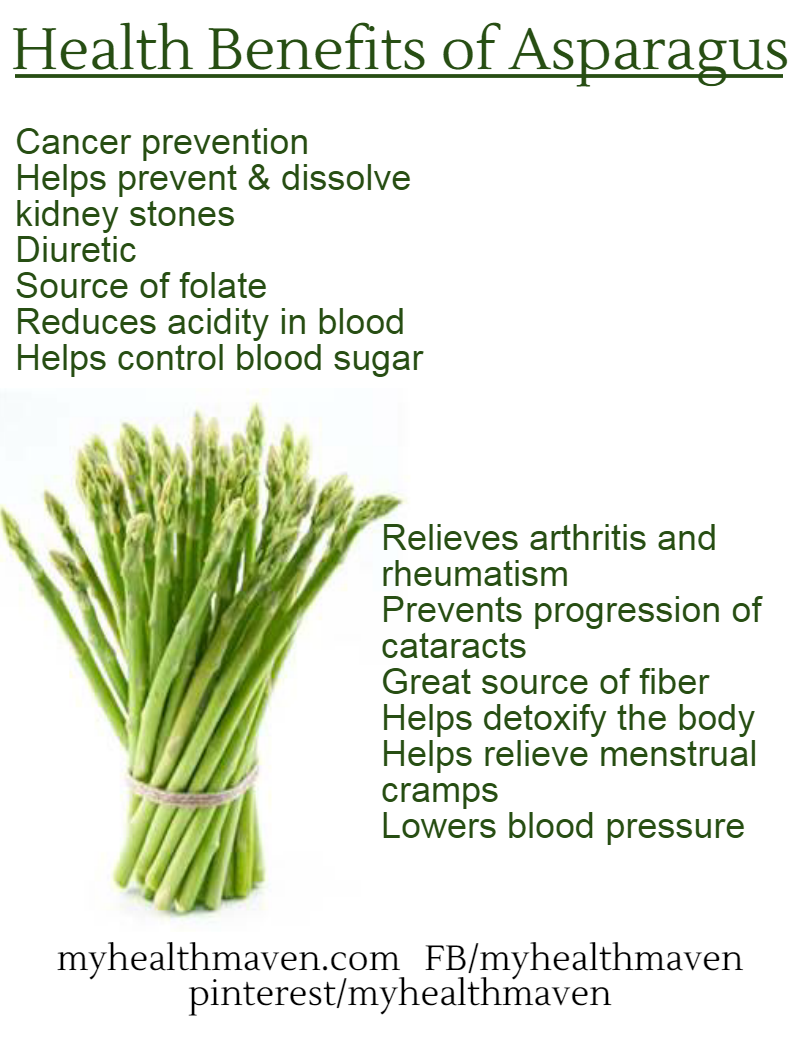How Healthy Is Asparagus? Nutritional Benefits And Health Advantages

Table of Contents
Asparagus's Impressive Nutritional Profile
Asparagus boasts a nutritional profile that's as impressive as it is diverse. This slender green stalk is packed with essential vitamins, minerals, and fiber, making it a valuable addition to any balanced diet.
Vitamins and Minerals: A Nutritional Powerhouse
Asparagus is an excellent source of several crucial vitamins and minerals. A single cup (approximately 180g) of cooked asparagus provides:
- Vitamin K: Crucial for blood clotting and bone health. A single cup of cooked asparagus provides a significant portion of your daily Vitamin K needs.
- Vitamin A: Essential for vision, immune function, and cell growth. Asparagus's Vitamin A content contributes to maintaining healthy eyesight and a robust immune system.
- Vitamin C: A powerful antioxidant that supports immune function and collagen production. This contributes to healthy skin and overall well-being.
- Folate (Vitamin B9): Essential for cell growth and development, particularly important during pregnancy. Folate plays a vital role in preventing neural tube defects in developing fetuses.
- Potassium: An important electrolyte that helps regulate blood pressure and fluid balance. Asparagus's potassium content supports cardiovascular health.
- Copper: Plays a role in energy production and iron absorption.
- Manganese: Important for bone health, wound healing, and metabolism.
Fiber Content and Digestive Health
Asparagus is a good source of both soluble and insoluble fiber. Soluble fiber helps regulate blood sugar levels and lowers cholesterol, while insoluble fiber promotes healthy digestion by adding bulk to the stool and preventing constipation. This contributes significantly to a healthy gut microbiome and overall digestive well-being. The high fiber content also promotes feelings of fullness, which can aid in weight management.
Antioxidant Powerhouse: Fighting Free Radicals
Asparagus is rich in antioxidants, such as glutathione, which protect your cells from damage caused by free radicals. Free radicals are unstable molecules that can contribute to aging and chronic diseases. By neutralizing these harmful molecules, antioxidants help reduce the risk of developing conditions like heart disease and certain types of cancer.
Health Advantages of Asparagus Consumption
The impressive nutritional profile of asparagus translates to a wide array of health benefits.
Boosting Heart Health: Protecting Your Cardiovascular System
The combination of potassium, folate, and fiber in asparagus contributes significantly to heart health. Potassium helps regulate blood pressure, while folate supports healthy blood vessel function. The fiber content aids in lowering cholesterol levels, further reducing the risk of heart disease. Studies have shown a correlation between increased consumption of vegetables like asparagus and a decreased risk of cardiovascular events.
Cancer Prevention: A Potential Protective Role
Research suggests that certain compounds in asparagus may have a protective effect against certain types of cancer. The high concentration of antioxidants, particularly glutathione, helps combat cell damage caused by free radicals, a known factor in cancer development. However, it's crucial to note that more research is needed to establish a definitive link between asparagus consumption and cancer prevention.
Improved Blood Sugar Control: Beneficial for Diabetics
Asparagus has a low glycemic index (GI), meaning it doesn't cause a rapid spike in blood sugar levels. Coupled with its fiber content, which helps regulate blood sugar absorption, asparagus is a beneficial food for individuals with diabetes or those at risk. Incorporating asparagus into a balanced, diabetic-friendly diet can contribute to better blood sugar management.
Kidney Health: Supporting Renal Function
Asparagus acts as a natural diuretic, helping your body eliminate excess water and waste products. This can be beneficial for kidney health by supporting the efficient removal of toxins. However, individuals with pre-existing kidney conditions should consult their doctor before significantly increasing their asparagus intake, as high potassium levels can be problematic in certain cases.
Incorporating Asparagus into Your Diet
Asparagus is incredibly versatile and can easily be incorporated into various dishes.
Delicious and Versatile Recipes: From Simple to Sophisticated
Asparagus can be prepared in countless ways:
- Roasted: Toss with olive oil, salt, and pepper, then roast until tender-crisp.
- Grilled: Grill spears until slightly charred for a smoky flavor.
- Steamed: A simple and healthy way to prepare asparagus, preserving its nutrients.
- Added to salads: A refreshing and nutritious addition to any salad.
- In soups and omelets: Asparagus adds flavor and nutrition to these classic dishes.
- Pasta Dishes: Add asparagus to your favorite pasta dishes for a healthy and flavorful twist.
[Link to a relevant recipe site (optional)]
Shopping and Storage Tips: Maintaining Freshness and Nutritional Value
Choose asparagus spears that are firm, bright green, and free of blemishes. Store asparagus in the refrigerator, standing upright in a glass of water, to maintain its freshness and prevent it from drying out.
Conclusion
How healthy is asparagus? Incredibly so! From its impressive vitamin and mineral content to its antioxidant power and high fiber, asparagus offers numerous health advantages. Adding asparagus to your diet can contribute to improved heart health, potentially reduce the risk of certain cancers, help control blood sugar levels, and promote healthy digestion. Add the nutritional power of asparagus to your meals today and discover the health benefits of this delicious and versatile vegetable! Start reaping the rewards of healthy eating with asparagus, and make it a regular part of your balanced diet.

Featured Posts
-
 No Te Pierdas Clases De Boxeo Edomex Solo 3 Dias
Apr 30, 2025
No Te Pierdas Clases De Boxeo Edomex Solo 3 Dias
Apr 30, 2025 -
 Zoe Kravitz And Noah Centineo Exploring The Dating Rumors
Apr 30, 2025
Zoe Kravitz And Noah Centineo Exploring The Dating Rumors
Apr 30, 2025 -
 Our Yorkshire Farms Amanda Owen Opens Up About Arguments With Clive
Apr 30, 2025
Our Yorkshire Farms Amanda Owen Opens Up About Arguments With Clive
Apr 30, 2025 -
 Chris Kaba Panorama Police Watchdog Challenges Bbc Broadcast To Ofcom
Apr 30, 2025
Chris Kaba Panorama Police Watchdog Challenges Bbc Broadcast To Ofcom
Apr 30, 2025 -
 Melwmat Mthyrt Llahtmam Fy Shhadt Mylad Bywnsyh
Apr 30, 2025
Melwmat Mthyrt Llahtmam Fy Shhadt Mylad Bywnsyh
Apr 30, 2025
